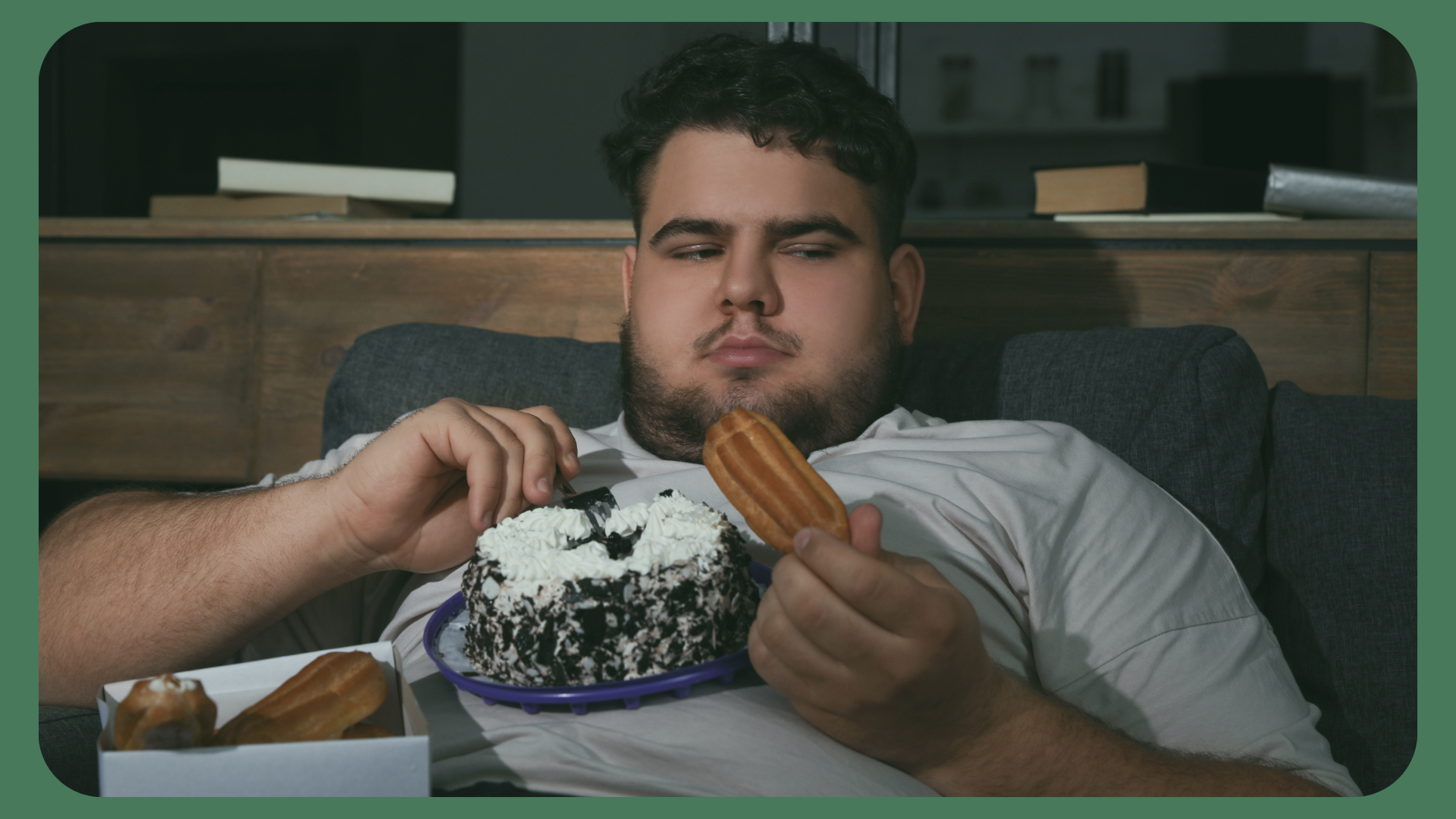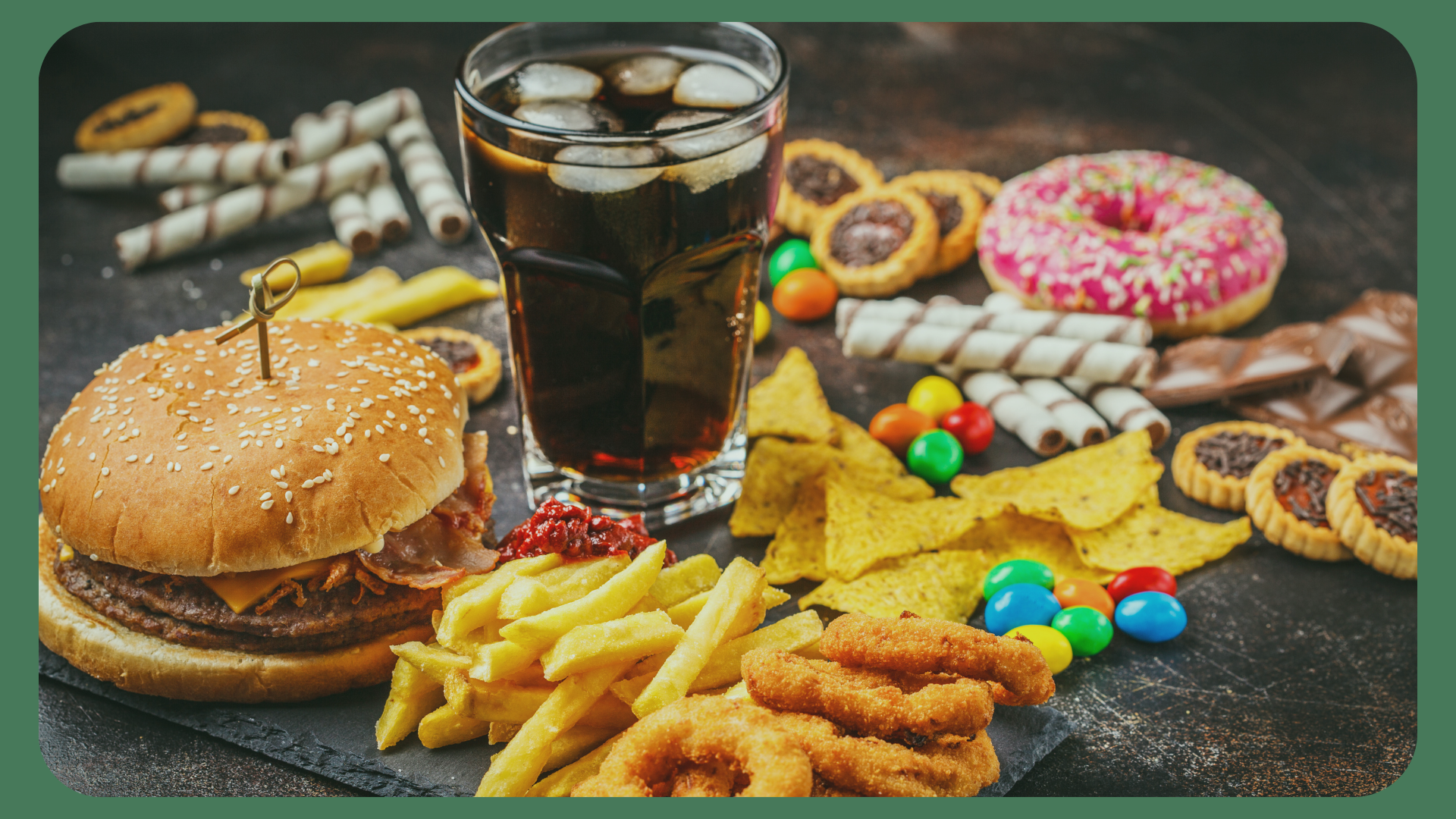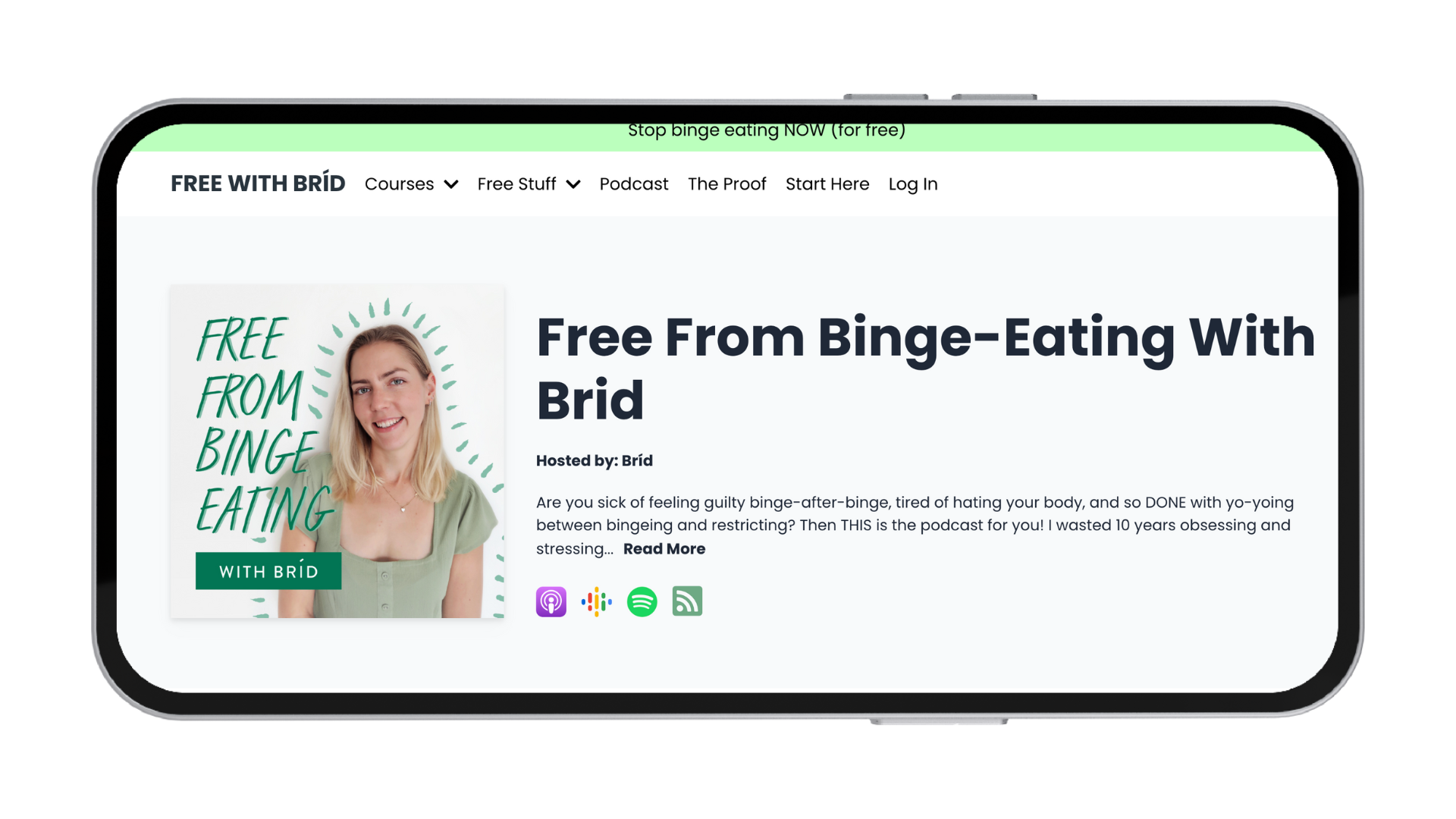Sweet Temptation: The "Can't Stop Binge Eating Sugar" Trap
Aug 10, 2023
I Can’t Stop Binge Eating SUGAR! The More I Try to Stop Craving It… The More I Find Myself Eating More.
Struggling to resist the allure of sugar and feeling 100% hopeless? Unlock the sweet trap and conquer your sugar cravings. Conquer the shocking truth behind unstoppable sugar binges!

Welcome back to our safe haven where we dive deep into fostering a harmonious connection with our bodies and food. Today, we're tackling a topic that might resonate with many of us: the relentless battle with sugar cravings and the unrelenting spiral into binge eating.
First, it's essential to recognize the perilous dance between binge eating disorder and sugary foods. The risk factors for binge eating disorder vary, but emotional eating and restrictive diets often lead to feeling out of control around food. Ah, sugar – the sweetest temptation of them all. Its allure can be overpowering, causing many to indulge in the occasional sugary feast that spirals into a full-blown binge on sugar.

Have you ever found yourself devouring an entire tub of ice cream or a bag of cookies, only to feel guilty and defeated afterward? This vicious cycle is all too common for those struggling with binge eating sugar. The emotional highs from consuming sugary treats are short-lived, leaving us with a sense of regret and weight gain in the long run. It's time to break free from this self-destructive pattern and regain control over our relationship with food.

Let’s understand this binge eating beast… Binge eating isn't just about consuming large amounts of food; it's a complex interplay of emotions, habits, and our relationship with food. It's like an unwelcome guest that creeps in when we least expect it, and sugar can sometimes be its favoured accomplice. Feeling out of control during these episodes can be distressing, and that's why it's crucial to explore the root causes.
So, let’s move to the next revelation, unmasking these root causes or more known as the “triggers” or what causes people to binge. More often than not, the desire to binge on sugar isn't solely about a lack of willpower. Emotional triggers, stress, and even restrictive diets can set the stage for a tumultuous dance with sugary treats. You see, when we place certain foods on a pedestal and label them as forbidden, it's like setting a ticking time bomb. Eventually, the urge to rebel becomes irresistible, and we find ourselves knee-deep in a bowl of ice cream, wondering how we got here.

Binge eating, including binge eating sugar, can be influenced by a variety of psychological, physiological, and environmental factors. While individual triggers may vary, here are some scientifically recognized factors that can contribute to binge eating sugar:
- Stress and Emotional Distress: Stress can lead to the release of certain hormones (like cortisol) that may trigger cravings for sugary foods as a way to cope with emotional discomfort.
- Reward Pathway: Sugar consumption activates the brain's reward pathway, releasing dopamine, which can create a pleasurable sensation. Over time, this can lead to seeking out sugary foods for their rewarding effects.
- Neurotransmitter Imbalance: Neurotransmitters like serotonin, which influence mood, appetite, and impulse control, may play a role in sugar cravings and binge eating.
- Hormonal Fluctuations: Hormonal changes, such as those that occur during the menstrual cycle, can influence appetite and cravings for sugary foods.
- Genetic Predisposition: Some individuals may have genetic factors that make them more susceptible to cravings for sugary foods and overeating.
- Dietary Restraint: Restrictive diets or prolonged periods of food restriction can lead to increased cravings and eventual overconsumption of sugary foods.
- Gut-Brain Connection: Emerging research suggests that the gut microbiota may influence food preferences, cravings, and overeating behaviours.
- Sleep Deprivation: Poor sleep quality and insufficient sleep have been linked to increased cravings for sugary and high-calorie foods.

So… how can we work on these effectively? Is there even a chance of getting saved or are we forever doomed for the rest of our lives and we are just holding on to a small string of hope where this problem “might” disappear for good?
Well, I assure you, as long as we’re alive, as long as you have the genuine goal to help yourself, there’s always HOPE! Whether it may be related to binge eating or anything under the sun.

It's important to note that these triggers can interact with each other and vary in their influence from person to person. Binge eating is a complex behaviour influenced by a combination of factors, and seeking professional help from a healthcare provider or mental health expert is the best and most recommended for managing and addressing binge eating behaviours. But don’t get too pressured… here are some ways on how to counter these trigger issues to stop or prevent sugar binge eating that you can try:

A. Moving Out the Unhealthy Dietary Restrictions: It's important to note that addressing sugar binge eating and dietary restraint may require personalised guidance and support from healthcare professionals, such as registered dietitians, therapists, and counsellors who specialise in disordered eating and behavioural change. These experts can help you develop a tailored approach that considers your unique circumstances and supports your journey toward healthier eating habits.
- Mindful Eating and Intuitive Eating: Practising mindful eating and intuitive eating involves paying full attention to your eating experience, including hunger and fullness cues, without judgement. It encourages you to reconnect with your body's natural signals and develop a healthier relationship with food. Instead of following strict dietary rules or restrictions, intuitive eating promotes a balanced approach to eating that is based on your body's needs and preferences. This approach has been shown to reduce binge eating behaviours and improve overall eating habits.
- Gradual Exposure and Habituation: Gradually exposing yourself to sugary foods in a controlled and planned manner can help reduce the allure and intensity of cravings over time. This process, known as habituation, involves repeatedly exposing yourself to the trigger (in this case, sugary foods) without engaging in binge eating. Research suggests that gradually facing and adapting to triggers can lead to reduced cravings and more controlled consumption over time.

B. Mindfulness-Based Stress Reduction (MBSR): Managing stress and emotional distress to counter sugar binge eating requires a holistic approach that addresses both the psychological and physiological aspects.
- Mindfulness Meditation: Regular mindfulness meditation has been shown to reduce stress and emotional eating. It helps you become more aware of your thoughts and emotions, allowing you to respond to stressors in a calm and controlled manner.
- Deep Breathing: Practise deep breathing exercises to activate the body's relaxation response, which can counter the release of stress hormones. Techniques like diaphragmatic breathing and box breathing are effective.
- Progressive Muscle Relaxation: This technique involves tensing and relaxing different muscle groups, promoting physical relaxation and reducing stress-induced cravings.
- Alternative Rewards: Replace sugary foods with non-food rewards to combat emotional distress. Engage in activities that bring you joy and satisfaction.

C. Mindful Eating and Cognitive Behavioral Techniques: Addressing the reward pathway and its influence on sugar binge eating involves a multifaceted approach that combines behavioural strategies, dietary changes, and lifestyle adjustments.
- Healthy Alternatives: Replace sugary treats with healthier options that still activate the reward pathway but are less calorically dense and provide more nutritional value. For example, opt for fruits, nuts, or yoghurt with a touch of honey instead of sugary desserts.
- Keep a Food Journal: Track your eating habits and emotions surrounding sugar consumption. This can help identify patterns and triggers for reward-based sugar eating.
- Set Specific Goals: Establish realistic and achievable goals for reducing sugar intake, such as limiting sugary treats to specific occasions. Gradually reduce sugar intake to allow your taste buds to adapt and cravings to decrease over time.

D. Holistic Neurotransmitter Interventions: While there isn't a one-size-fits-all solution, addressing sugar consumption related to neurotransmitter imbalance involves a holistic approach that combines dietary, lifestyle, and potentially medical interventions.
- Balanced Diet: Consume a well-balanced diet rich in whole foods, including lean proteins, complex carbohydrates, healthy fats, and plenty of fruits and vegetables. This can help stabilise blood sugar levels and support neurotransmitter production.
- Amino Acid Precursors: Certain amino acids are precursors to neurotransmitters. Consult a healthcare provider before taking supplements like tryptophan (serotonin precursor) or tyrosine/phenylalanine (dopamine and norepinephrine precursors).

E. Hormone Physiological and Psychological Strategies: Managing sugar binge eating due to hormonal fluctuations requires a holistic approach that combines both physiological and psychological strategies. It's important to remember that addressing sugar binge eating due to hormonal fluctuations may require time and patience. Finding the right combination of strategies that work for you, along with professional guidance, can greatly improve your ability to manage and overcome this challenge.
- Balanced Diet with Regular Meals: Eating regular meals and snacks throughout the day can prevent extreme fluctuations in blood sugar and keep hormones more stable. Avoiding drastic calorie restrictions and fad diets is important, as these can exacerbate hormonal imbalances and trigger binge eating.
- Regular Physical Activity: Engaging in regular physical activity has been shown to help regulate hormones, improve mood, and reduce cravings for sugary foods. Exercise can increase endorphin production and positively impact hormones like insulin and cortisol.

F. Nutritional Counseling and Meal Planning: It's important to note that individualised treatment and a holistic approach are key when addressing sugar binge eating influenced by genetic factors. Seeking support from qualified healthcare professionals, such as therapists, dietitians, and medical doctors, is crucial for developing a personalised plan that addresses both the genetic predisposition and the broader psychological and environmental factors contributing to the behaviour.
- Cognitive-Behavioral Therapy (CBT): CBT is a widely recognized and effective therapeutic approach for treating various eating disorders, including binge eating. CBT helps individuals identify and modify negative thought patterns and behaviours associated with binge eating. This approach can help individuals gain better control over their eating behaviours, even when there's a genetic predisposition to binge eating.
- Mindful Meal Plans with Professionals: Working with a registered dietitian or nutritionist can provide valuable guidance in managing sugar binge eating. These professionals can help create a balanced and sustainable eating plan that takes into account an individual's genetic predisposition and specific nutritional needs. They can also provide education about the physiological effects of sugar, the importance of balanced meals, and strategies for incorporating healthier alternatives to sugary foods.

G. Improvement of Gut Health: It's important to emphasise that addressing sugar binge eating through the gut-brain connection is just one aspect of a comprehensive approach.
- Probiotics and Gut Health: Probiotics are beneficial bacteria that can have a positive impact on gut health. There is evidence suggesting that a healthy gut microbiota composition is linked to improved mood, reduced cravings, and better appetite regulation. Consuming foods rich in probiotics (like yoghourt, kefir, sauerkraut) or taking probiotic supplements may help support a healthy gut-brain axis and reduce sugar cravings.
- Fibre-Rich Diet: A diet high in fibre has been associated with better gut health and improved appetite control. Soluble fibre, in particular, can help stabilise blood sugar levels and promote a feeling of fullness, which may help reduce the intensity of sugar cravings. Fibre-rich foods include fruits, vegetables, whole grains, legumes, and seeds.

H. Prioritise Sleep and Establish a Consistent Sleep Routine: Remember, overcoming sugar binge eating caused by sleep deprivation requires consistent effort and may take time. Addressing sugar binge eating caused by sleep deprivation involves both improving sleep quality and implementing strategies to manage cravings.
- Prioritising a Healthy Sleeping Routine: Scientific studies have shown that getting enough high-quality sleep can have a positive impact on controlling cravings and reducing binge eating behaviours. Aim for 7-9 hours of sleep per night, as recommended for adults. Create a consistent sleep schedule by going to bed and waking up at the same times each day, even on weekends. Create a calming bedtime routine that signals to your body that it's time to wind down. This might include reading, taking a warm bath, practising relaxation techniques, or gentle stretching. Make your sleep environment conducive to rest: keep the room dark, quiet, and at a comfortable temperature.

Imagine a life where sugary temptations lose their stronghold, where you're the one in control. Through a blend of compassionate guidance and practical strategies, we navigate the path to liberation from the cycle of binge eating. No need for rigid diets or quick fixes – just sustainable, achievable steps that resonate with your unique journey.

Here’s to no more battles with temptation, no more guilt-ridden indulgences—just a renewed understanding of the choices that invigorate our well-being. Your journey to liberation starts now. Delving into our treasure trove of free masterclasses such as the “Why You’re Still Binge Eating Masterclass” and binge-eating related podcasts, you'll discover insights that ignite a transformation within you. And when you're ready to take the next step, my 1-on-1 coaching offers personalised guidance tailored to your aspirations and challenges.
As we wrap up our heart-to-heart on the battle against sugar-induced binge eating, let's embrace the idea that change takes time. It's a journey filled with twists and turns, but one that's absolutely worth embarking on. By unravelling the threads that tie us to sugary temptations and fostering a nurturing relationship with food, we pave the way for a future free from the shackles of binge eating. So stand strong, stay mindful, and remember – you have the power to reshape your narrative and reclaim control over your journey to health and happiness.
If you want to connect with me, check out my social media and website:
Instagram - @freewithbrid
Website - www.freewithbrid.com
or WORK WITH ME! 💚
All love from your Binge-Eating Coach, BRID.
Start your food and body healing journey with the FREE masterclass
"Why You're Still Binge-Eating & How To Stop"

